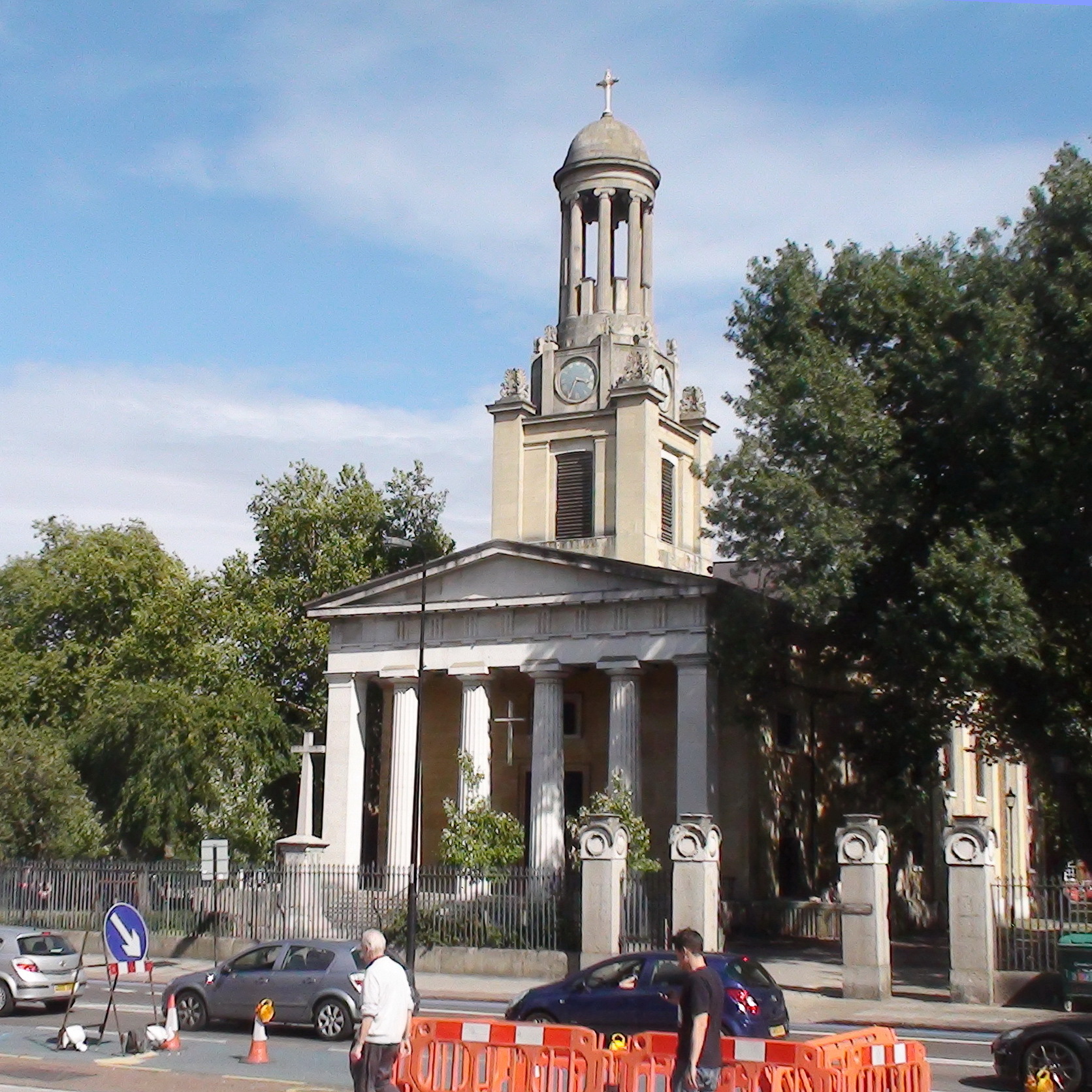{On plinth, facing the road:}
To the glory of God and in honoured memory of the men from this parish and neighbourhood who gave their lives in the Great War 1914 - 18.
"May we in faith and honour keep that peace for which they paid."
{The other three sides of the plinth carry the list of 324 names, in alphabetic sequence. See Subjects commemorated for the names.}
{Above the names, running around all 4 faces:}
I am the resurrection and the life. St John XI 25
We can find no source for the quotation "May we ...", though it is also used on memorials in Dorset and Falkirk.
There are two columns of names on 3 sides. The names are given in alphabetic sequence with a few exceptions: on all 3 sides below the panel with the list there is a small group of names which are all of out sequence. These 28 late additions are quite telling. We can think of a few explanations, all sad: the craftsmen physically creating the list on the monument just missed out a name and the error was only found when the monument was "proof-read". Or the names were not on the list being used by the maker, either through an administrative error that was only discovered when the monument was unveiled and the relatives searched for the name, or because the soldier was injured but not, yet, dead when the list was drawn up, or he could even have died after the monument was unveiled. We've identified all the late-addition names on their individual pages.
At the bottom of this page on the Stockwell War Memorial website there are some links which provide more information about the men on this Kennington memorial.
Site: St Marks, Kennington (2 memorials)
SW9, Clapham Road, St Marks Church
The church's website has a good history page with more information. The church was built in 1824. Oval History has a photo of the ruins left by WW2 bombing.
When we visited in Spring 2015 the church grounds contained a weapons bin, "Get a life, bin that knife", which it's difficult not to interpret as a comment on the locality.
The section of the common now occupied by tennis courts and a football pitch were added following slum clearance in 1921. The section, to the SE of St Agnes Place is known as the Extension, added in 1970s.
British History On-line gives the site of the Kennington Common gallows as "Part of {the Common}, including the site of the church and burial ground and the triangle of land between Brixton and Kennington Park Roads".










Comments are provided by Facebook, please ensure you are signed in here to see them